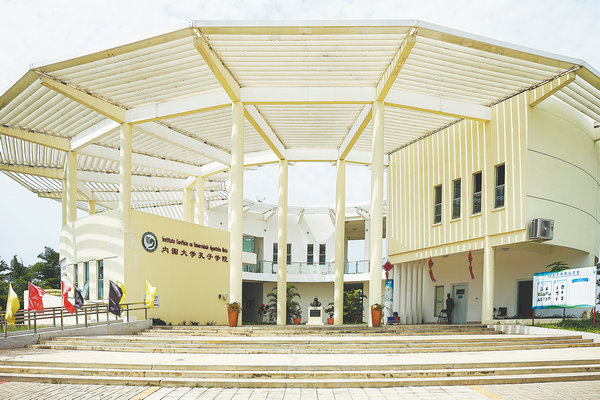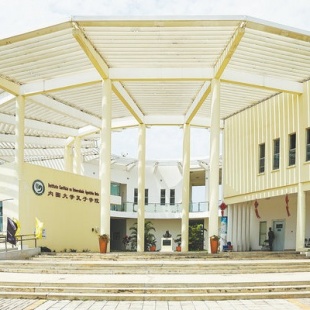Angolan youth embrace Chinese language study


In the bustling streets of Luanda, Angola's capital, a wave of enthusiasm for learning the Chinese language is sweeping through the young population.
Inside the Agostinho Neto University, one of Angola's most prestigious higher education institutions, an entry-level Mandarin course is underway at the university's Confucius Institute.
"What's on the table? A bottle is on the table," Sun Yun says in Chinese, repeating and using body language to make it easier for her Angolan students to understand.
"They have only studied for three months, but they can already practice dialogues in pairs based on the textbook content," says Sun, a teacher at the Confucius Institute. She oversees three classes with more than 100 students, including students from the university, other institutions, and high school students.
"Their passion for learning is strong, and they practice on their own after class. On the one hand, they have a passion for the language and the country; on the other hand, they believe that mastering the language could open the doors to Chinese companies in Angola, a career path they have dreamed of," she says.
Raul Carvalho, who studied Chinese at the institute a few years ago, now returns whenever he has time to help with teaching. For him, his initial interest in learning Chinese led to his professional success.
"In Angola, it's not easy to find a good job. But the Mandarin I have learned paves the way for a promising career," Carvalho says.
He began his journey of learning Mandarin in 2017, signing up for classes immediately after seeing the Confucius Institute's post online.
The first step is always the most difficult. Pronunciation, grammar and even sentence logic confused him. However, with perseverance, the young man got a scholarship in 2018 to study at Harbin Normal University in Northeast China's Heilongjiang province, the cooperating institution of the Confucius Institute at the UAN.
"I would go out of class and chat with people I met, from street chess players to restaurant owners. Even though I spoke slowly, they were all very patient and taught me authentic Chinese expressions," he recalls.
He took high-speed trains, wandered the night market and became a regular online shopper. With recommendations from Chinese friends, he delved into the diverse offerings of Chinese cuisine, quickly becoming an enthusiastic aficionado.
In 2022, Carvalho nailed the interviews and got a project assistant and translator job at China Energy Engineering Corporation's Angola office, where he could use his professionalism while improving his Chinese at work.
He now teaches his 18-year-old sister Chinese, hoping to give her a bright future like his.
Carvalho's experience mirrors that of thousands of Chinese-language learners in Angola. As the number of Chinese enterprises in Angola exceeds 400, many Angolan youths believe that proficiency in Chinese is becoming an increasingly important skill in the southwestern African country's labor market.
According to Zhao Yufeng, co-director of the UAN Confucius Institute, China-Angola cooperation has deepened through the Belt and Road Initiative, and the interaction of language and culture is important.
"We are working with various government departments and academic institutions on language-training projects to build a platform to advance cooperation between the two countries," says Zhao.
Since its establishment in 2015, more than 2,000 students have enrolled in the university's Confucius Institute. Pedro Magalhaes, rector of the university, says Angola's development "cannot be separated from China" and hoped that exchanges between the two countries' higher education institutions will promote friendship.





































